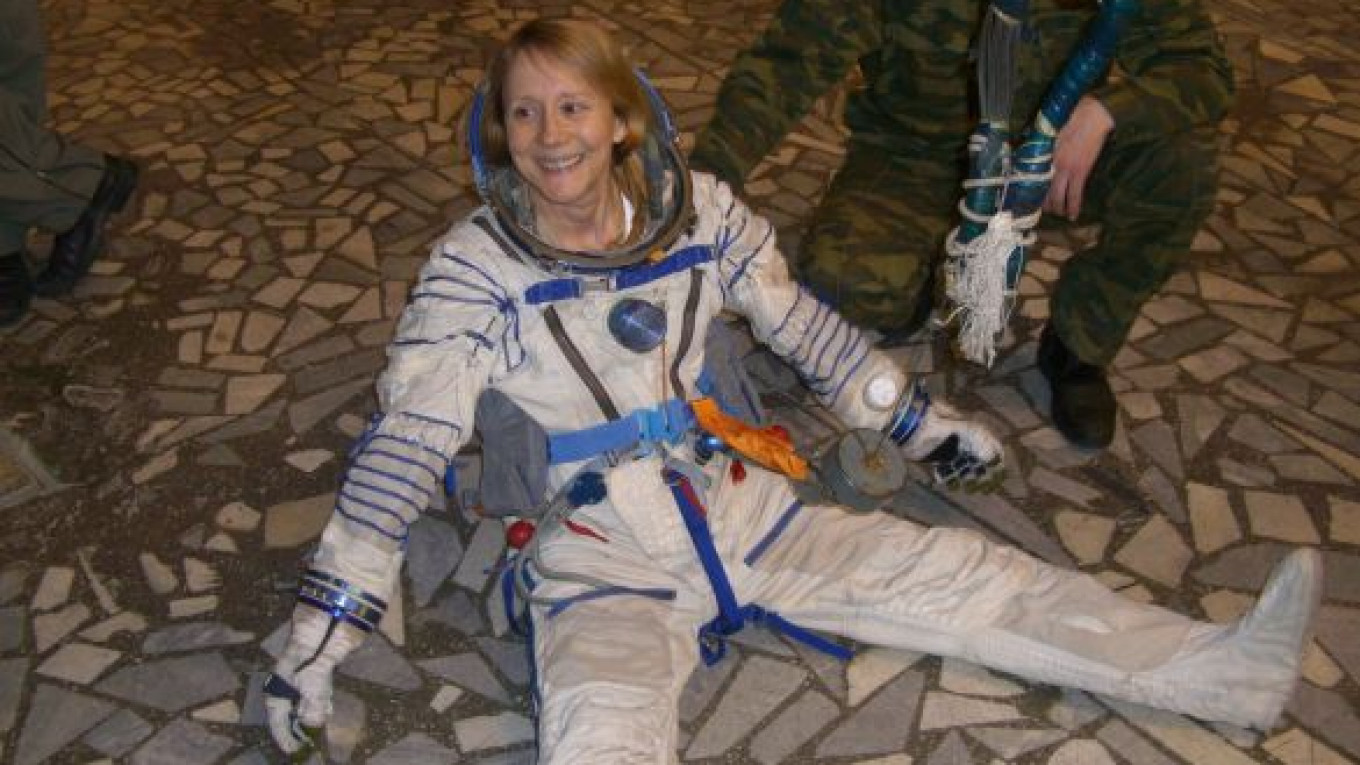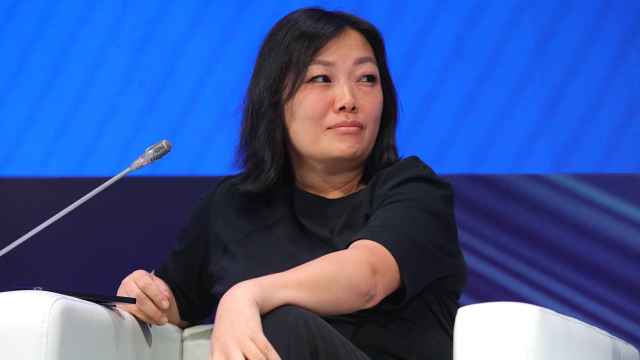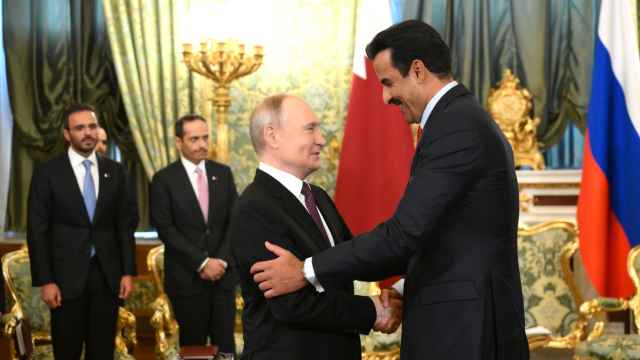If inefficiency and unfulfilled aspirations are the Yin, then Esther Dyson is the Yang that will balance them out and set things straight.
As a child, she joined her famous physicist father on airplanes, and naturally assumed that in adulthood she'd be travelling on rockets. With that dream unfulfilled, she gravitated to investing in technology companies, including commercial space exploration, which she is convinced will rectify the situation.
Education
Never graduated from high school
1972 — Harvard University, Bachelor’s of Economics
Work Experience
1974-77 — Forbes copy editor and journalist
1982 — Rosen Research
1983 — Purchased Rosen Research, including newsletter and PC Forum Conference and renamed the company EDventure Holdings
1997 — Published “Release 2.0: A Design for Living in the Digital Age”
1998-2000 — Founding chairman of the Internet Corporation for Assigned Names and Numbers
2004 — Sold EDventure Holdings to CNET Networks
2007 — Separated from CNET Networks
Oct. 2008-March 2009 — Trained at Star City as a backup cosmonaut;
board member of Yandex, IBS Group, 23andMe, XCOR Aerospace, et al.
Currently reading: “Turing’s Cathedral” (2012) by George Dyson (her brother)
Movie pick: “Chinatown” (1974) directed by Roman Polanski
Favorite Moscow restaurant: the private room at Pizza Hut, back in the ’90s
Weekend getaway destination: the closest seaside
Dyson, a self-acclaimed efficiency nut who has been working with and investing in Russia for nearly a quarter of a century, is offended when she sees others laboring pointlessly.
"I'm lazy on behalf of everybody. It just offends me to see someone doing useless work — whether it is me or someone else," she says, though you'd find it hard to believe, observing her schedule during a typical visit to the country, which has her attending dozens of board meetings and events in a just a few days.
But she reenergizes by staying up late and just talking to people—something she doesn't do elsewhere — and feels completely at home in Russia.
Dyson, 60, visited Russia for the first time in 1989 and became inspired by the ingenuity of the programmers she met — many of whom went on to become leaders of the country's IT sector. It was the ingenuity that she saw and her desire to make it solve real problems which keeps calling her back.
She said in an interview with The Moscow Times that the process gave her the insight and motivation to morph from a journalist into an investor—which she sees as a natural progression.
Dyson got in on the ground floor of giants like Yandex and IBS Group and helped other local technology leaders find their role models and partners in the West, reaping profits along the way. She is now involved in dozens of other companies, having added space flight and health services to her investment portfolio.
Hoping to test space flight for herself, in October 2008 Dyson took a six-month hiatus from her commitments to train at Star City as back-up cosmonaut for a trip to the International Space Station, and was happy to disappoint board members at her many ventures by informing them she was busy at cosmonaut training camp.
This interview has been edited for length and clarity.
Q: When did you first come to Russia?
A: I always had respect for Russians. That was the reason I learned Russian in high school — because my dad [Editors note: prize winning theoretical physicist Freeman Dyson] knew all of these Russians. Our neighbor was Vladimir Zworykin, the Russian who developed color TV.
But then I did nothing with it. I had visions of being a foreign correspondent in Moscow, but I ended up getting other jobs. If I had ever been properly fired and jobless, I probably would have gone to Russia.
In 1989, I was having breakfast with this guy Gary Chapman from Computer Professionals for Social Responsibility and he mentioned that he was going to Russia in April, and I asked, "Oh, can I come along and translate for you?" Which was a total bluff, but that's what I did.
There I met Stepan Pachikov the founder of ParaGraph and Evernote, Arkady Borkovsky (current CTO of Yandex Labs), Arkady Volozh (current general director of Yandex) and Igor Agamirzyan (current CEO of RVC) and Borkovsky's birthday party. We watched the May Day parade and got on an airplane. I thought "Well, that was really interesting, but there is no point in going back." There were these new software co-ops, but nothing businesslike developing.
I went back in September, and again in December on a tour of Zelenograd, where they produced microelectronics. It was excruciatingly boring. So the next day, I called in sick and met with all the other guys I had met on the first two trips. I thought to myself: This is getting to be a habit, but there is really nothing commercial in Russia; maybe I should check out Hungary for Christmas. While in Hungary in '89, I saw how all the Hungarians were intently watching on television how Romania's Ceausescu was chased, caught and executed. At that moment, I suddenly realized I was homesickness for Russia. It made absolutely no sense. But that is what it was.
Q: What made you keep coming back?
A: I started a conference called the East-West-High-Tech Forum. The first one was in Budapest. It was the boys from the West selling stuff and the guys from the East programming stuff and doing business together. In April 1989, I also met Alexey Pajitnov, who did Tetris. At the end of the conference, Pajitnov came up to me and said, "You know, in Russia we know about Bill Gates. We've heard of him, but he is not relevant to us. He's an American; he went to Harvard. But to see what the Hungarians have done — to see that they have built real companies — to us, that means something. We can do this too."
That was what kept me running conferences for almost 10 years until finally I started investing instead.
Q: Why did you become an investor?
A: I had a newsletter about Eastern Europe called Rel-East that I started writing because I wanted to talk to people and find out what was happening. People are busy: "Excuse me, I have a job; why are you talking to me?" "Well I'm talking to you because I'm writing a newsletter and then I'll make you famous." So that was a great way to come in and talk to people and learn a ton and then I ran the conference. But once I was investing, I didn't need the newsletter any more. What I discovered was that if I was an investor, people would also talk to me and tell me what was going on and even take my advice, because they were taking my money. So I started doing this and of course the amounts of money required were 10 times smaller than in the US.
Q: As an investor have you ever been cheated?
A: I had invited Stepan Pachikov and a bunch of other people to my PC Forum in the US, where I introduced him to Bill Gates and Steve Jobs. He later did some business with Steve, creating the handwriting recognition for the Apple Newton through his company ParaGraph International. He called me up one day and said "Esther, a lawyer is going to call you and send you some documents. Please say yes and sign them." They were giving me 1 percent of the company as a sort of thank you.
People keep talking about Russia and how you are cheated, but I have had the opposite experience. That doesn't mean that it doesn't happen, but my case is worthy of notice. I had a real return because they sold the company for 50 million to Silicon Graphics. I took that money and invested it in various Russian things, including Sasha Galitsky's (founder of Almaz Capital Partners) first company.
Q: Why have you decided to add space and medicine to your interests?
A: I like doing useful things. I just don't see it as a huge problem that rich Americans can't figure out which video to watch.
The very first company I was ever involved with was Federal Express, which does logistics. Federal Express to me is the model of a company. It's a startup; it used technology, it created a market. It did something really useful and made the world more efficient. I like that.
If you just look around the world, health is an enormous problem. Right now I'm on the advisory board and about to be an investor in VitaPortal.ru, a Russian health site, and I was involved with Text4baby.org because there is nothing more inefficient than someone who is sick.
Space is more expansionist. When I was growing up, I took the space program for granted. My dad and I took planes from time to time, and I knew that there weren't planes when he was a boy, so I assumed the same thing would happen with rockets and that there would be rockets everywhere by the time I grew up. Then I grew up, and no rockets. So I finally realized it was time to get involved.
Q: Why did you train to become a cosmonaut?
A: For me it was more interesting than for most Americans because I know Russia to some extent, but I don't really know Soviet Russia. I wanted a little sense of what it was like to live in one of those closed cities. I didn't have any privacy, but I didn't expect to have any privacy. And I had no autonomy. They told me what to do and where to be.
I'm an American, I'm an efficiency nut. So the experience was very good for me in terms of getting exactly what I wanted, which was to push myself and see how I did. There were many things that drove me crazy, but it was good; I survived it. And the Internet was extremely helpful. I was still in touch with all my obligations. My very best day was when I missed three board meetings on the same day. I just wrote to them and said, "ehh I'm in cosmonaut training; can't make it."
Q: How then do Russia's inefficiencies mesh with your personality?
A: My thing about Russia is that is kind of like home. Which is very weird as I have no Russian background but Russia is the only place where I stay up late and talk to people. I "reset" when I come to Russia. Things that would drive me crazy, I can let go.
Q: How do you see global cooperation on the space issue in the future?
A: We at XCOR and all the competitors are delighted at SpaceX's success. There needs to be more than one company; otherwise there's not a market. It proves the capability of commercial enterprise to do it cheaply and effectively.
It's not that government is bad; it's just that government has to be very risk-averse. If the government were running mountain climbing nobody would ever climb Mt. Everest. People die there all the time. They are explicitly prepared to do so; that's the deal. But if the government ran that, they couldn't afford the risk. It is not that SpaceX is careless, but the way to get good at something is to do it again and again, and the shuttle program flew far too inconsistently. One great thing about the Russians is that the Soyuzes go up again and again and again, and so does the Progress. That's how to get good. Sheer frequency is really important.
Let's face it, you can't have all these tourists on the space station. You can have one or two as they have done. So Bigelow Aerospace will offer its space hotel, and we need a couple more for these guys to visit. You can't just send people into space. You need to either fix up an asteroid or create a few more space hotels. And all of that is going to happen, but it is still going to be pretty special. And in the meantime, you'll have the Virgin Galactic and the XCOR Lynxes, which are the suborbital flights, getting more people attuned to the idea and excited. With luck, it will also cause more little kids to become interested in studying math and science.
I'd go into space in a minute, and the older I get, the more appealing it becomes as I have less to lose if something goes wrong.
Q: What more could the Russian government do with Skolkovo?
A: The one thing I would like to see them do more of is not pitch it as "We're as good as foreigners and can sell internationally," but instead "We Russians can build a better society for Russians." We can make it that when granny goes to the store, the tomatoes are fresh. When I go to pay my traffic fine, I can do it online. This isn't for a bunch of rich foreigners, it is for Russian citizens to live in a modern world where things work, trains are on time and you don't need three backup plans every time you walk out the door.
To me, Skolkovo's PR should be focused on Russians, so that when a little boy or girl says they want to be an entrepreneur, the parents say "That's great" instead of "Ahh, you should work for Sberbank, it's safer." But it's not just the entrepreneur's mindset, it's the people who work for the entrepreneur too. Every entrepreneur needs hundreds or thousands of people working for him or her over time, therefore people should feel it is good to work for small companies, that small companies are respectable and reliable.
Q: What is the source of your optimism?
That is a mystery. I'm a skeptical and cynical person. I'm extremely lazy, and I'm lazy on behalf of everybody. It just offends me to see someone doing useless work — whether it is me or someone else. And I just like to fix things. There is a lot of Russian ingenuity that I would like to see applied to real problems instead of foolish problems.
Every time you tell me about a problem, I think wow, there's something we can fix. We can make someone's life better and charge them for it.
Q: Why have Russians come to love social media?
A: Partly because this is not a society where you make friends easily with strangers. You can communicate with people online even though you might not do it face to face. Another reason is the winter — who wants to go out?
The reality is that Russians, at least until recently, have had more spare time, so they could spend more of it online. There is an interesting phenomenon. The amount of money people spend on communications is very high as proportion of total income.
People think of Facebook and Twitter as organizing tools, but I think they have a much more fundamental impact. Go back to Soviet times. Everything was owned by the government: the movie theaters, the sports clubs. If you went to see a movie it was picked by the government, your job was more or less decided by someone who worked for the government, there wasn't anyone else to work for. What you read was government selected, government permitted, government produced. The heroes were — remember Pavlik Morozov — all government created heroes.
Now suddenly, people are not just buying the clothes they want and going online and finding things out on Yandex. They are writing their own history. And it is so amazing. In the old days, you could be disappeared. You didn't really exist … but now you are on Vkontakte. You have a presence; you have an identity; you are telling your own story. I think that is probably a much bigger change than "Oh gee, we have a mechanism to meet on the corner of so and so." It is "I'm telling my own story. I'm not a figment of the government's imagination."
Q: Do you think social media and the Internet will help diminish corruption?
A: I hope so fervently. Look at Yandex's ads from a few years ago … When you take the metro and at the bottom of every escalator there is a ***дежурный*** (attendant) and it says ***справок не дает*** (Don't ask for information). Can you imagine a more Soviet saying? So Yandex bought ads and put them in about half the subway cars, which read ***Машинист справок не дает—все вопросы Яндексу*** (The train driver does not give information; take all questions to Yandex). Transparency, visibility, all of this. The internet inherently helps with efficiency and transparency. It can be subverted, but people's habits are changing and they are beginning to ask the right questions.
Q: What advice would you give to those who want to invest here?
A: Be prepared to find very smart people who have bad habits and help them change their habits. And appeal to their rational side. Russians are very interested in evidence and fact and rational explanations about why you should do something.
Be prepared to listen.
A Message from The Moscow Times:
Dear readers,
We are facing unprecedented challenges. Russia's Prosecutor General's Office has designated The Moscow Times as an "undesirable" organization, criminalizing our work and putting our staff at risk of prosecution. This follows our earlier unjust labeling as a "foreign agent."
These actions are direct attempts to silence independent journalism in Russia. The authorities claim our work "discredits the decisions of the Russian leadership." We see things differently: we strive to provide accurate, unbiased reporting on Russia.
We, the journalists of The Moscow Times, refuse to be silenced. But to continue our work, we need your help.
Your support, no matter how small, makes a world of difference. If you can, please support us monthly starting from just $2. It's quick to set up, and every contribution makes a significant impact.
By supporting The Moscow Times, you're defending open, independent journalism in the face of repression. Thank you for standing with us.
Remind me later.






